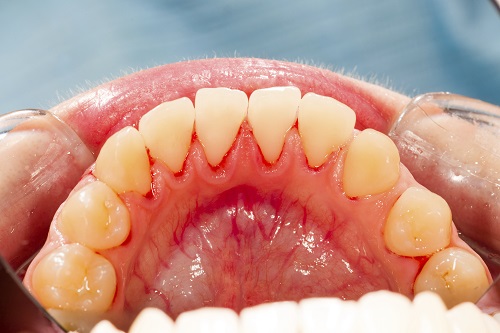South Ogden
How Flossing Impacts Gum Disease
From a young age your parents tell you to brush and floss every day. They tell you it is important, but you are not always told why it is important. Because there is no why, many ignore the idea of flossing every day. It requires effort and time, and many are not willing to spare these things. The best way to get people to floss regularly is to teach them the impact that flossing has as they get older. Gum disease is a serious problem and flossing can affect the way a person has to deal with this problem.

How Gum Disease Progresses
Gum disease is a progressive disease. It is a result of a buildup of bacteria that form plaque and tartar on the teeth and on the gums. The bacteria grow when they are not removed. The best way to prevent the buildup of plaque and tartar is through daily brushing and flossing. This removes debris and bacteria that is on the teeth and gums. When you do not brush and floss, the bacteria will grow and can eventually lead to gum disease.
Flossing and Gum Disease
Some people may think that if they have gum disease, they may as well stop worrying about flossing. They may think the damage is done, but they do not understand how gum disease continues to progress. The earlier gum disease is diagnosed, the easier it is to treat.
Treatment for the early stages of gum disease includes improved oral hygiene. That means flossing and brushing more often.
Flossing removes debris found between the teeth and gums. Even if gum disease has begun, removing the debris through flossing can prevent it from getting worse and can also start the healing process. It is not something to ever stop even when gum disease is present.
For more information about this and any other oral health issue, contact the dental professionals at our office.
